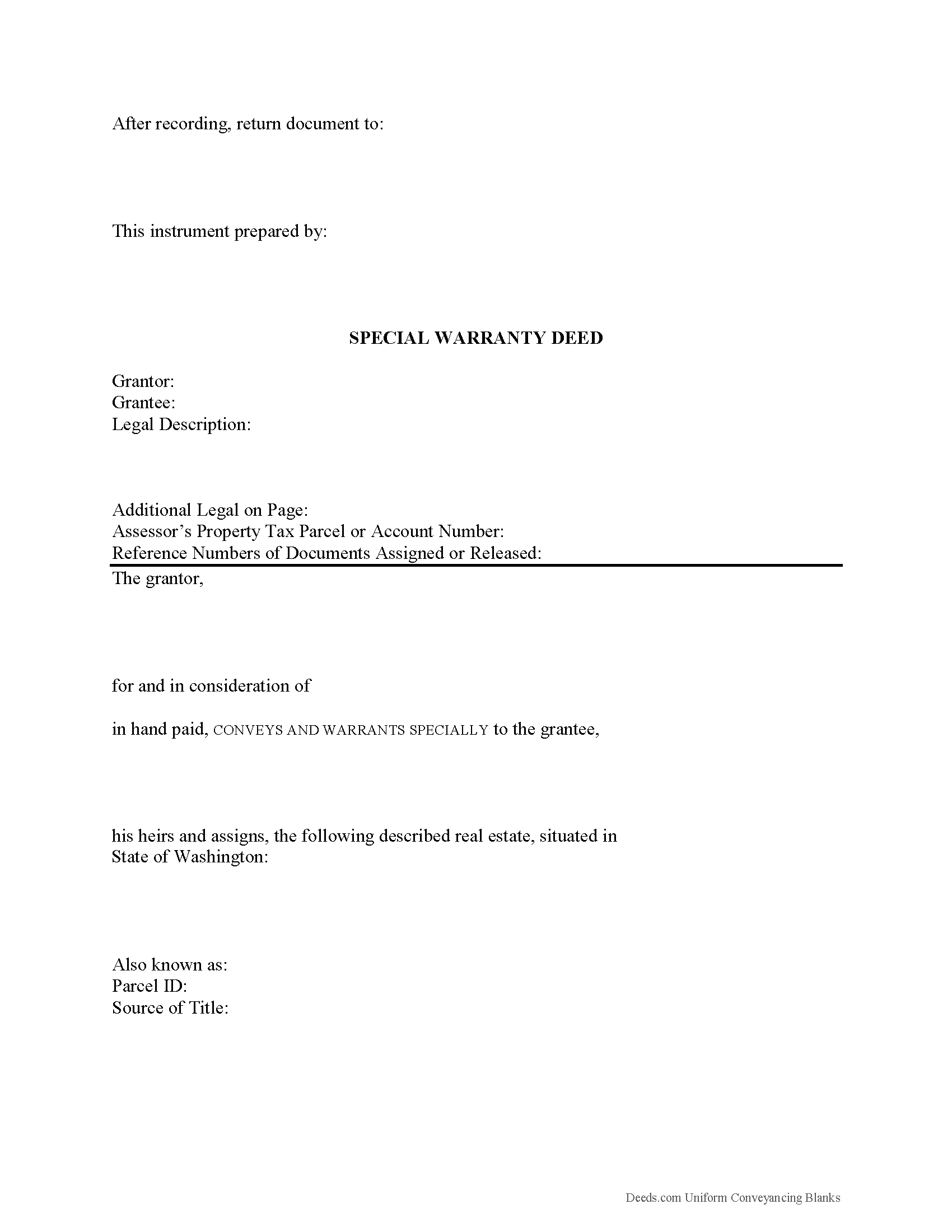Download Washington Special Warranty Deed Legal Forms

Washington Special Warranty Deed Overview

In Washington State, title to real property can be transferred from one party to another using a special warranty deed. When recorded, a special warranty deed conveys an interest in real property to the named grantee with limited warranties of title.
Special warranty deeds convey real property in fee simple to the grantee typically with the covenants from the grantor that the property is free from encumbrances made by the grantor and that the grantor will defend the grantee's title against any lawful claim arising by, through, or under the grantor, but none other. This means that the deed will not protect the grantee against title issues that arose prior to the time the grantor acquired title. A special warranty deed is recognizable by the terms "convey and warrant specially."
In addition to meeting all state and local standards for recorded documents, a lawful special warranty deed includes the grantor's full name, mailing address, and marital status, the consideration given for the transfer, and the grantee's full name, marital status, vesting, and mailing address. Vesting describes how the grantee holds title to the property. Generally, real property is owned in either sole ownership or in co-ownership. For Washington residential property, the primary methods for holding title are tenancy in common, joint tenancy, and community property. A conveyance of real estate to two or more persons creates a tenancy in common, unless a joint tenancy is declared (RCW 64-28-010). A conveyance to a married couple is presumed to be community property, unless declared otherwise (RCW 64-28-020, 64-28-040).
As with any conveyance of realty, a special warranty deed requires a complete legal description of the parcel. In Washington, an abbreviated legal description of the property must appear on the first page of the instrument. If the full legal description appears elsewhere in the deed, its located should be indicated on the first page (RCW 65-04-045).
Recite the prior deed reference to maintain a clear chain of title, and detail any restrictions associated with the property. The finished copy of the deed must be signed by the grantor (and his or her spouse, if applicable) and notarized. Record the original completed deed, along with any additional materials, at the recorder or auditor's office of the county where the property is located. Contact the same office to verify recording fees and accepted forms of payment.
In Washington, real estate excise tax is levied based on the amount of consideration. If the transfer is exempt from the excise tax, denote the reason for the exemption on the face of the deed. Find a list of exempt transfers at RCW 458-61A-200 through 217.
This article is provided for informational purposes only and is not a substitute for the advice of an attorney. Contact a Washington lawyer with any questions related to the transfer of real property.
(Washington SWD Package includes form, guidelines, and completed example)